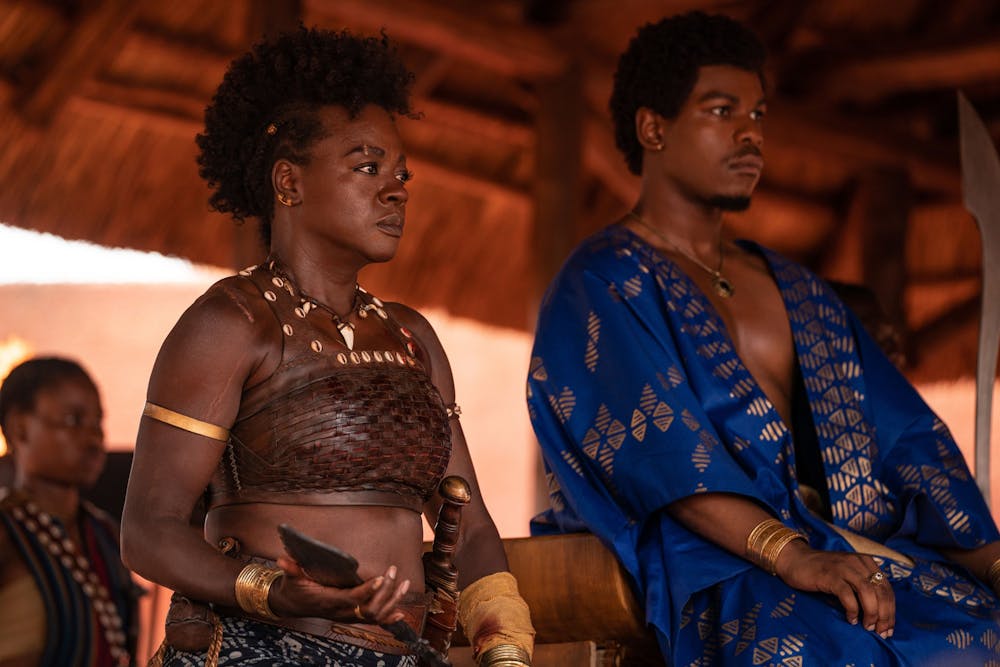I had no idea what to expect when I sat in Silverspot Cinema with some friends to watch Viola Davis’ new film "The Woman King" last week, but I was pleasantly surprised at how much I liked it.
"The Woman King" is a history lesson wrapped in an action-packed drama, and that history is both lesser known and complicated.
All that brought me to the movie theater that day was the gorgeous image of Davis on the cover of Elle Brasil. That was the extent of the press I’d seen, except for a TikTok I saw later about the gruesome physical training the actors went through for the fight scenes. I had expected a female version of "Black Panther" and prepared to be impressed by 50-something-year-old Davis in an action scene. What I ended up more curious about was the history that the film is set in.
"The Woman King" tells the story of a group of all-female warriors from the kingdom of Dahomey in West Africa. This group were the Agoji women, also called the Dahomey Amazons – a name given to them by the French. As the kingdom, located in present-day Benin, grew in power, the Agoji women operated as bodyguards for royalty and militia to conquer other kingdoms and expand the Dahomey’s power.
As depicted in the movie, the women were barred from marriage or motherhood, and enjoyed the privilege of smoking and drinking, as well as being relatively autonomous outside of their duties. They trained and lived together within the King’s palace. Historians estimate that by the mid-19th century, there were nearly 6,000 Agoji women who were warriors, huntresses, rifle-women, archers and gunners.
The all-female militia is an interesting part of history that I wasn’t taught in school. It contrasts with modern and Western understandings of the military and overall fighting skills as masculine, evident from phrases like “you punch like a girl.” The Agoji stand as an exception to this norm. Besides depictions in 1987's "Cobra Verde" and a representation by the Dora Milaje in Marvel’s "Black Panther," their history has remained buried.
"The Woman King" not only vivifies this story, leaning on the tones of female empowerment, but also the darker side which involves their participation in the trans-Atlantic slave trade.
While fighting neighboring kingdoms, the Agoji women would capture slaves, offering the women the opportunity to join their ranks. Eventually, through their relationship with the British, raids were purposed for the slave trade — which helped the kingdom flourish economically.
The history of African countries participating in the slave trade is sensitive, so much so that some social media users created #BoycottWomanKing in protest of the film’s failure to address the Dahomey Kingdom’s involvement.



